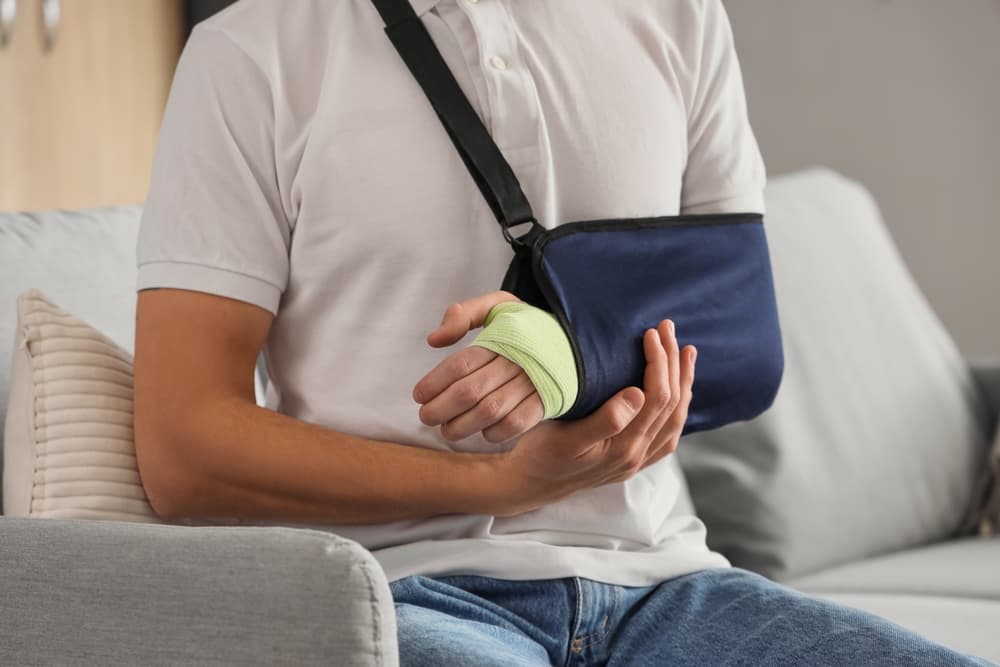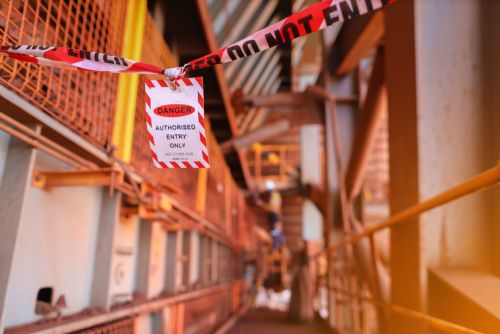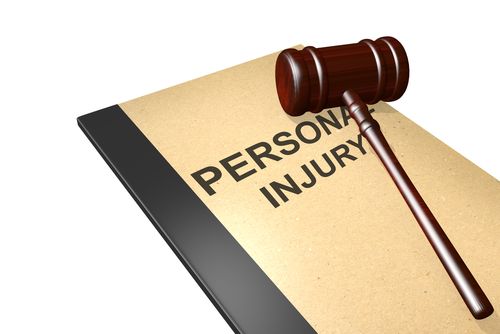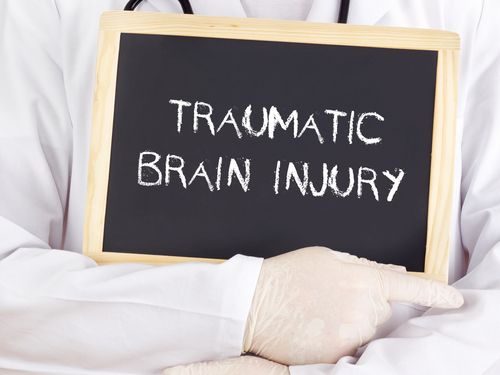If you’ve been hurt in an accident or because of someone else’s negligence, you might feel stressed by the fallout. Physical pain, emotional stress, and financial strain can take a huge toll, leaving you wondering if life will ever feel normal again. When the harm you’ve suffered wasn’t your fault, it’s only natural to ask, “What kind of damages can you sue for?”
One step forward is to explore whether you’re entitled to compensation for your losses with the help of a personal injury lawyer. The legal system is designed to help victims like you recover damages from those responsible for your injuries. You’ve already endured so much—seeking damages isn’t about “getting even.” It’s about helping you rebuild your life and secure a future in which you and your family can heal and thrive.
Understanding what damages you can seek is an important part of the process. Personal injury law breaks these damages into three main categories: economic damages, non-economic damages, and punitive damages. Each serves a specific purpose and reflects a different cost of the harm you’ve endured.
For a free legal consultation, call 516-451-7900
Economic Damages
Economic damages, sometimes called “special damages,” account for the financial losses caused by your injury. These are the expenses you can calculate because they involve specific dollar amounts. When reviewing these damages, think about any cost you’ve already faced—as well as future financial needs that stem from your injury.
Medical Expenses
Medical care after an injury can quickly become overwhelming. From emergency room visits and surgeries to physical therapy and prescription medications, the bills pile up fast. You might even need specialized care, like rehabilitation programs or medical equipment such as wheelchairs or prosthetics.
For example, imagine you were hit by a distracted driver while crossing the street. You suffered a broken leg and needed surgery to insert screws to stabilize the bone. Along with your hospital stay, you had follow-up appointments, hours of physical therapy, and months of pain medication. All these costs add up quickly and fall under the category of medical expenses.
Importantly, future medical costs can also be included in your claim. If you require long-term treatment, surgeries, or care for a chronic condition resulting from an injury, those projected costs should be accounted for.
Lost Income and Earning Capacity
An accident may force you to miss work, and every missed paycheck can leave a huge financial gap. Economic damages include compensation for lost wages during your recovery. But it doesn’t stop there. If your injury affects your ability to work long term, you may be eligible for damages related to lost earning capacity.
Consider someone who worked as a carpenter before suffering a severe hand injury in a workplace accident. If they can no longer perform the tasks their job requires, they may need to seek a different type of employment or adjust to a reduced income. Damages for lost earning capacity aim to bridge this gap and offer a degree of financial stability moving forward.
Property Damage
If your accident involved damage to personal property (such as a car in a collision), you can usually seek damages to repair or replace those items. For example, if you were struck by a careless driver and your car was totaled, the cost of a new vehicle could be included in your claim.
Other Out-of-Pocket Expenses
Economic damages don’t stop at the obvious. They can include any reasonable expense tied to your injury. If you’ve needed childcare, had to pay for transportation to medical appointments, or required home modifications to accommodate a disability, these expenses could count, too.
Non-Economic Damages

While economic damages address financial costs, non-economic damages focus on the intangible losses that profoundly impact your life. These losses are harder to calculate in dollars and cents but are just as real. After all, life isn’t only about money—it’s about the ability to fully live, enjoy, and connect with the people you love.
Pain and Suffering
The physical pain you’ve endured because of your injury is one of the most significant yet intangible damages you can pursue. Think about how your injury has affected your daily life. Does it hurt to do simple tasks? Have constant aches taken a toll on your mental health? Pain and suffering compensation aims to address the weight of living with discomfort, both now and in the future.
Emotional Distress
An accident doesn’t only leave physical scars; it can also leave emotional ones. Many people struggle with anxiety, depression, post-traumatic stress disorder (PTSD), or overwhelming fear after a serious incident. For example, if you were in a terrifying car accident, even getting behind the wheel again might fill you with dread. Non-economic damages for emotional distress reflect the psychological toll of your experience.
Loss of Enjoyment of Life
Has your injury taken away activities or hobbies you once loved? Perhaps you used to hike, paint, or play with your children, but the effects of your injury have made those things impossible or less joyous. Loss of enjoyment of life damages recognizes how deeply these changes can affect your overall well-being.
Loss of Consortium
If your injuries have harmed your relationships with loved ones, you may also be entitled to compensation. This includes the loss of companionship, support, intimacy, or other aspects of close family relationships. For example, if a spouse can no longer provide the same level of emotional or physical connection due to an injury, their partner could claim loss of consortium.
Punitive Damages
Punitive damages are different from both economic and non-economic damages. Their purpose isn’t to compensate you for a loss but to punish the wrongdoer for particularly reckless or harmful conduct. Courts also award these damages to send a message that such behavior won’t be tolerated.
Punitive damages are less common and typically apply in cases where the defendant acted in a grossly negligent, intentional, or malicious way. For instance, if a company knowingly sold a defective product that caused serious harm, punitive damages may be awarded to hold them accountable and deter others from behaving similarly.
Why Pursue Damages?
Seeking damages isn’t about greed or putting a price on your suffering; it’s about justice and ensuring your well-being. Recovering compensation can help you pay for critical medical care, cover household expenses while you’re unable to work, and provide a sense of closure that allows you to focus on recovery rather than financial anxiety.
Pursuing damages also places accountability on those who caused the harm. When someone’s careless actions threaten others’ safety, they must be held responsible. Doing so may prompt individuals and companies to make safer choices, potentially avoiding additional tragedies down the road.
Click to contact our personal injury lawyers today
How Are Damages Calculated?
Each personal injury case is unique, so the value of damages varies widely based on the specifics of your situation. Several factors influence the amount you might recover, including:
- The severity of your injury
- The impact on your ability to work and live daily life
- The circumstances of the accident
- Evidence supporting your claim (like medical records, expert testimony, or witness statements)
It can feel overwhelming to figure out what your claim is worth on your own. While it might be tempting to trust an insurance company’s quick settlement offer, keep in mind that their goal is to minimize payouts—not to offer you what’s fair. Having an experienced advocate on your side can make all the difference in ensuring you obtain the full and fair compensation you deserve.
Common Examples of Personal Injury Cases

While personal injury claims can arise in a variety of situations, some types of incidents are especially common. Understanding these scenarios may help you recognize how damages can apply to your case and how similar accidents have impacted others. Here are some of the most frequent examples of personal injury cases:
Car Accidents
Car accidents are one of the leading causes of personal injury claims. Whether caused by distracted driving, speeding, drunk driving, or poor road conditions, motor vehicle collisions can lead to serious injuries. Victims may face broken bones, whiplash, traumatic brain injuries, or even permanent disabilities. Think about a driver who runs a red light and crashes into someone’s vehicle, leaving that person with extensive medical bills, weeks of missed work, and chronic pain. Damages in such a case could cover medical costs, lost wages, and even pain and suffering.
Slip-and-Fall Incidents
Slip-and-fall accidents often result from unsafe property conditions, such as wet floors, uneven sidewalks, poor lighting, or broken stairs. These cases typically fall under premises liability law, where property owners are held accountable for failing to maintain a safe environment. For example, if a grocery store neglects to clean up spilled liquid in an aisle and a shopper slips and fractures their hip, the business may be responsible for damages. Such injuries often lead to medical expenses, physical therapy, and loss of mobility, especially for older adults.
Medical Malpractice
When a healthcare provider’s negligence causes harm, the consequences can be devastating. Medical malpractice cases may involve surgical errors, missed diagnoses, improper treatment, or medication mistakes. For instance, consider a doctor who prescribes the wrong medication, leading to severe side effects or organ damage. The injured patient could pursue damages to cover further medical treatment, lost income due to inability to work, and the long-term emotional toll of losing trust in medical care.
Defective Products
Defective or poorly designed products can also lead to personal injury claims. Manufacturers and companies have a duty to ensure their products are safe for consumers. If they fail to do so, they can be held liable for resulting injuries. Picture a situation where a child’s toy is made with dangerous small parts and a toddler accidentally swallows one, causing choking and a medical emergency. Parents in this case may pursue damages for medical bills as well as emotional distress tied to the incident.
Workplace Accidents
Although many workplace injuries are covered by workers’ compensation, there are certain circumstances where a personal injury claim may also be appropriate. This is often the case when a third party’s negligence contributed to the accident. For instance, if a delivery driver was injured in a crash caused by a reckless driver while on the job, they could file a personal injury suit against the at-fault driver.
Dog Bites or Animal Attacks
Dog owners are responsible for ensuring their pets don’t harm others. If someone is bitten or attacked by a dog, it can lead to painful injuries, permanent scarring, or even infections. Beyond the medical care required, many victims are left dealing with the psychological aftermath, such as a fear of animals. For these cases, victims may recover damages to address both physical and emotional harm.
Wrongful Death
Some personal injury cases unfortunately involve fatalities, such as a deadly car crash or a fatal mistake during surgery. These cases are often referred to as wrongful death claims. Family members may seek damages for funeral expenses, loss of financial support, and the emotional devastation of losing a loved one.
By recognizing these common scenarios, you may better understand how personal injury claims take shape and how damages apply to the challenges victims face. Each case is unique, but the goal is always the same—to help victims recover compensation so they can begin to rebuild their lives. If you’ve experienced an accident or injury, remember that you’re not alone, and there’s support available to guide you through the process of seeking justice.
Get the Help You Need from an Experienced Personal Injury Lawyer
The path to recovery may feel long and uncertain, but you don’t have to walk it alone. When you’ve been seriously hurt because of someone else’s negligence, you deserve compassionate support and skilled legal guidance to see your case through. Our lawyers at Rosenberg & Gluck have spent decades helping individuals like you seek justice and regain their footing after life-changing accidents.
Our firm focuses exclusively on personal injury cases, and we understand the challenges you’re facing—from managing mounting bills to coping with physical and emotional pain. We’re here to fight for you and explore every avenue to maximize your compensation so that you can move forward with confidence.
There’s no cost to consult with us and learn more about how we can help. We work on a contingency fee basis, which means you don’t owe us anything unless we win compensation for your case. Let us help you take the first step toward a brighter future. Contact us at (631) 451-7900 or through our online form for a free consultation, and together, we’ll work to hold those who caused your harm accountable. Remember, you’ve been through enough already—we’re here to lighten this load.








